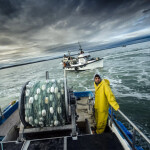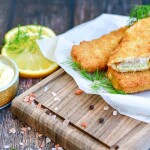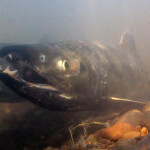After years of seemingly unstoppable growth, the value of pangasius exports from Vietnam has reached a plateau, according to Dr. Nguyen Huu Dzung, VP of the Vietnam Association of Seafood Exporters and Producers (VASEP). The turning point was 2008, he said, when total export sales hit USD 1.45 billion. (They reacahed USD 1.34 billion in 2009 and USD 1.43 billion last year.)
However, during the same period, the value of exports to the EU, Vietnam’s major market for pangasius products, fell from USD 581 million in 2008 to USD 539 million in 2009 and USD 511 million in 2010. In 2008 and 2009, the volume of pangasius exported to the EU remained steady at 224,000 metric tons, but there was a slight drop in 2010 due to less fish being farmed.
Despite the decline in overall value, the price of pangasius exported to the EU has been increasing — in the last two years it has jumped by 50 percent — and the cost to importers is now USD 3.40 to 3.50 per kilogram CIF, said Dzung. (There are reports of export prices to the EU hitting USD 3.70 per kilogram, while U.S. importers are paying USD 4 per kilogram CIF.)
Although export prices are rising, pangasius farmers are not feeling the benefit. They are being squeezed hard as their costs continue to soar. According to Dzung, farmers are receiving VND 28,000 to 29,000 (about USD 1.40) per kilogram for live harvested fish. However, they are facing 21 to 23 percent interest on bank loans needed to buy juveniles to grow on and to pay for feed. Other costs such as electricity and fuel are also going up, he added.
However, it is the price of feed that is the major issue. Feed accounts for about 70 percent of the production cost of pangasius, and this has to be imported at an ever increasing price; there was a 20 percent increase last year.
Not surprisingly, less fish are being produced and some processing plants are working at only 30 percent of their operating capacity, although the average for all factories is 60 percent, according to Dzung.
However, rather than export prices continuing to rise and risk hitting sales, Dzung said that Vietnamese producers should look at ways to cut their costs. VASEP wants export prices to remain at current levels, he said, and the maximum price that European importers should be asked to pay for IQF pangasius fillets is USD 3.50 per kilogram CIF.
Vietnamese exporters could, of course, seek to increase their sales in the United States where price does not seem to be as critical as it is in the EU, but there could be troubled times ahead for Vietnamese companies selling into that market. If pangasius production in Vietnam is placed under the jurisdiction of the U.S. Department of Agriculture, as the U.S. catfish industry is hoping, it will become extremely difficult for Vietnamese pangasius farmers to comply with the conditions that will be imposed upon them.
One way to cut the cost of pangasius production in Vietnam, said Dzung, would be to increase the value of byproducts using modern technology. “Pangasius oil could be refined for use in the cosmetics industry, or for health treatments,” he said. “Processing waste such as heads, tails [and] fins could be used to produce fishmeal which could then be used as a feed component for species such as shrimp and tilapia. Waste material from the bottom of pangasius ponds could be used as a fertilizer for farming on land.”
Reducing production costs is all very well, but the Vietnamese pangasius industry must avoid cutting corners in order to do so. Although the efforts of the World Wildlife Fund to discredit the Vietnamese pangasius industry have themselves been discredited, it is inevitable that some mud will stick. The methods used to farm and process pangasius in Vietnam will therefore come under greater scrutiny than ever before.
Thus even more vigilance will be required from those overseeing the industry to ensure that it remains beyond reproach.






